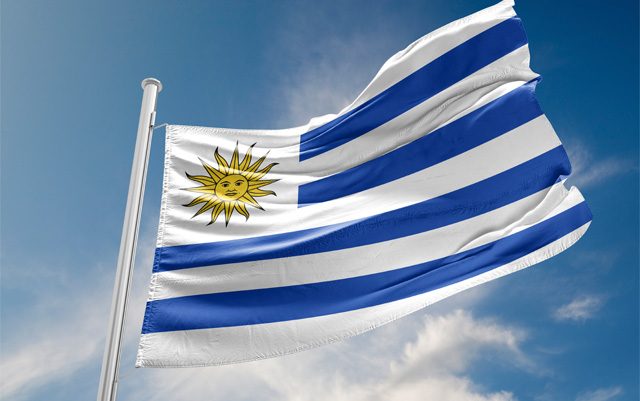Soon, anyone aged 18 and older who is registered with the government will be able to walk into a participating pharmacy in Uruguay and buy up to 40 grams of marijuana a month. Instead of presenting I.D. or a special card, those looking to buy marijuana will have their thumbprint scanned; this will tell the pharmacy if they are registered and how much cannabis they are allowed to buy.
So far it sounds pretty good. True, a limit higher than 40 grams would be nice, as would a lack of the government having your thumbprint and a record of all your purchases, but cannabis consumers in most states in the U.S. would love to live under Uruguay’s system.
But the Uruguay marijuana retail system has one major flaw, a flaw that will degrade its ability to function properly in the year to come: the supply of legal marijuana is completely controlled by the government. Through two private cultivation firms, the government of Uruguay will control every aspect of the process, deciding how much is to be produced and at what potency. The price for all the cannabis will be set at $1.30 a gram.
In theory this all may sound great, but here is what is going to happen: since the government has no incentive to grow quality marijuana – with no competition, consumers have nowhere to turn to for legal marijuana if they are unhappy with what is at the pharmacies – the quality of legal marijuana will always remain low compared to what can be grown by someone with a mild competency in cultivation. And since the government decides how much will be grown regardless of demand, there will likely be constant shortages. If the fixed price of $1.30 a gram is below what would be a fair price worked out by the laws of supply and demand, this will exacerbate the shortage problem even further. The government will then increase supply in an effort to keep up with demand, which will lead to a surplus of marijuana that needs to be stored properly, leading to waste. The government will forever be adjusting the levels to keep up with a shifting and growing market, all while fighting the black market and the importation of higher quality marijuana from other countries.
“The risk of what they’re doing in Colorado is that you end up with something like the tobacco industry,” said Julio Calzada, one of the public health officials who designed Uruguay’s regulatory model after lawmakers approved legalization in 2013. But this analogy falls apart when you realize just how much safer a substance marijuana is compared to tobacco. The theory is that the evil cannabis robber barons will conspire to dupe the public about the dangers of marijuana in an effort to get them hooked on the noxious weed. Except that marijuana has never killed anyone through overdose, does not lead to lung cancer or mouth cancer or throat cancer, is not habit-forming for the vast majority of people who use it and it has been in use for thousands of years so we already know what it does and how it works.
What cannabis consumers have to look forward to in Uruguay is a mediocre product that will alternately be difficult to find or left rotting in a warehouse. This will lead to the continuation of the black market and efforts by criminal gangs to import and grow better quality marijuana in Uruguay, dooming the kind of success the marijuana industry in the country could have had under a different system.







I think you need a more accurate about the Uruguayan process. There is weed from clubs, there is autocultivation, and the government just supervises the flowers to be sold on pharmacies soon.
Also there is an industry emerging. The process is more complex and doesn´t need to be a failure.
At least we, Uruguayans hope it will be a success…
Why be so negative? The person whom wrote this article has no idea what they are talking about. Just speculation. You think a government is going to neglect millions of dollars of revenue? Highly doubtful. The beginning is slow, as it should be. They will slowly loosen the grip. Especially when the companies begin to expand further into south america. After 1 year the cannabis company is able to re negotiate. This is the dawn of a new age. Treat it as one.